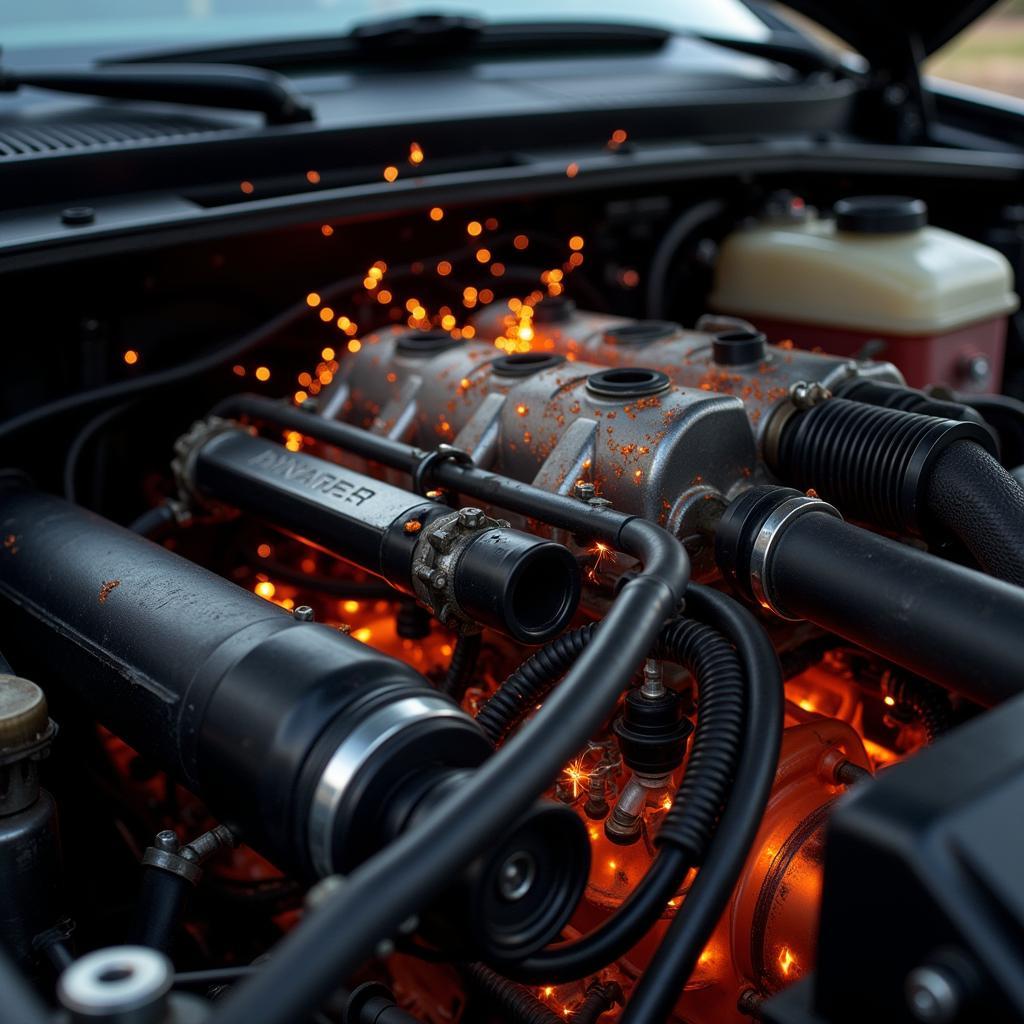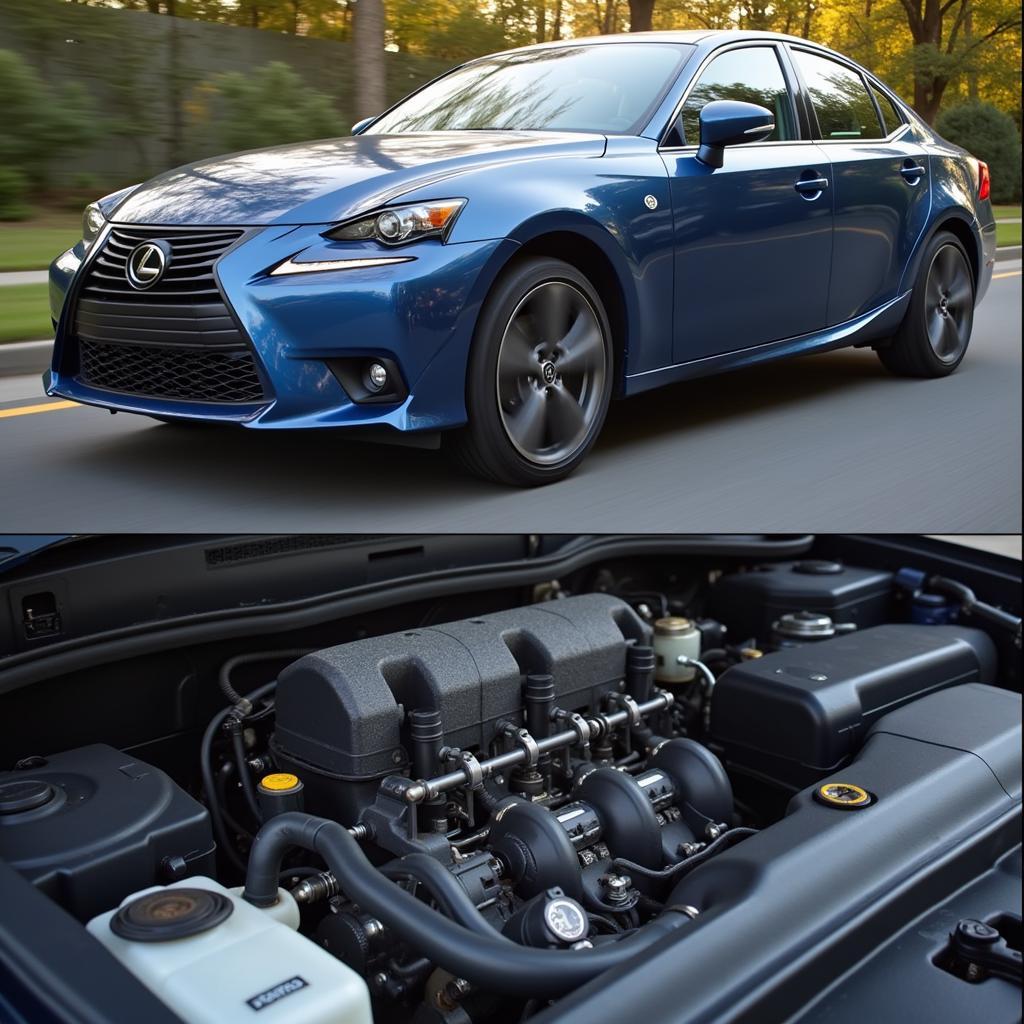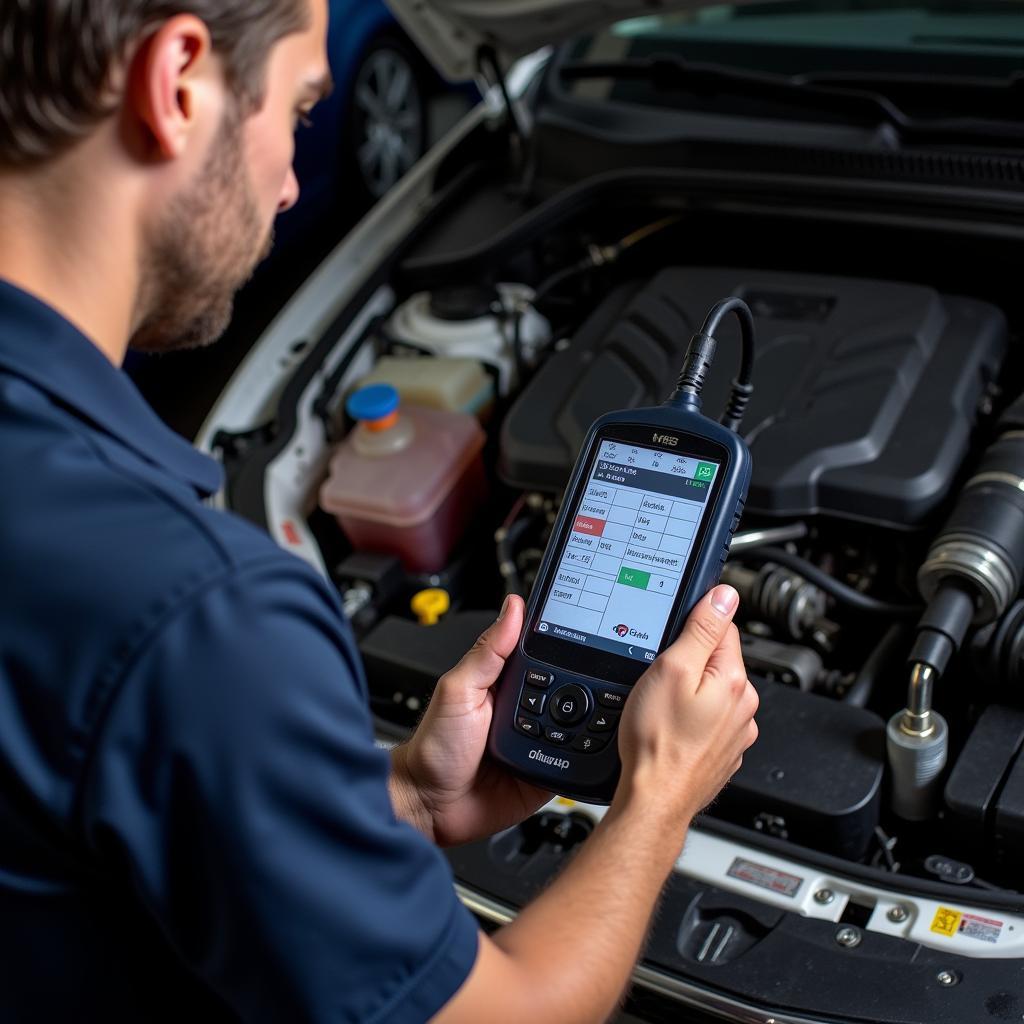Fuel injectors are essential components of your car’s engine. They’re responsible for spraying a fine mist of fuel into the engine’s cylinders, where it mixes with air and ignites to produce power. When fuel injectors malfunction, it can lead to a range of performance issues and even leave you stranded.
This comprehensive guide delves into the common Symptoms Of Car Fuel Injector Problems, helping you identify and address these issues before they escalate.
Recognizing the Red Flags: Common Symptoms of Faulty Fuel Injectors
A variety of signs can point to troubled fuel injectors. It’s important to remember that these symptoms can also indicate other engine problems, so a proper diagnosis is crucial.
Here are some telltale signs that your car’s fuel injectors might be acting up:
- Engine Misfires: One of the most noticeable symptoms is engine misfires, often accompanied by a rough idle. This happens when the fuel injectors fail to deliver the right amount of fuel to the cylinders, disrupting the combustion process.
 Car Engine Misfiring and Idling Roughly
Car Engine Misfiring and Idling Roughly
-
Reduced Fuel Efficiency: If you notice a sudden drop in your gas mileage, it could be a sign of leaky or clogged fuel injectors. When injectors don’t function properly, they can disrupt the air-fuel ratio, leading to inefficient combustion and wasted fuel.
-
Rough Engine Idle: A rough or shaky feeling when your car is idling is another common symptom of fuel injector problems. This occurs because the cylinders aren’t receiving a consistent fuel supply, leading to uneven engine operation.
 Car Experiencing Rough Engine Idle Due to Fuel Injector Issue
Car Experiencing Rough Engine Idle Due to Fuel Injector Issue
-
Hesitation or Stalling: Faulty fuel injectors can cause your car to hesitate or stall during acceleration. This happens when the engine doesn’t receive the necessary fuel boost to keep up with the increased demand.
-
Increased Emissions: If your car fails an emissions test, clogged or malfunctioning fuel injectors might be the culprit. Improper fuel delivery can lead to incomplete combustion, resulting in increased harmful emissions.
-
Fuel Odor: A strong smell of gasoline inside or outside the car can indicate a leaking fuel injector. If you detect this, it’s essential to address the issue promptly to prevent potential fire hazards.
-
Check Engine Light: One of the most common indicators of car problems, the check engine light, can illuminate due to faulty fuel injectors. A diagnostic scan can reveal specific error codes related to injector performance.
Understanding the Importance of Timely Diagnosis and Repair
Recognizing the symptoms of car fuel injector problems is crucial for preventing further engine damage and costly repairs.
“Ignoring fuel injector issues can snowball into bigger problems,” says John Smith, a seasoned automotive engineer with over 20 years of experience. “Addressing these issues early on can save you a lot of trouble and expense down the road.”
If you suspect your car might be experiencing fuel injector problems, it’s best to consult a qualified mechanic or automotive technician. They can perform a thorough diagnosis using specialized equipment to pinpoint the exact cause of the issue.
 Mechanic Diagnosing Fuel Injector Issues in a Car
Mechanic Diagnosing Fuel Injector Issues in a Car
Beyond Symptoms: Maintaining Optimal Fuel Injector Health
While recognizing symptoms is vital, preventative maintenance can go a long way in keeping your fuel injectors in top shape. Here are some tips:
-
Regular Fuel System Cleaning: Using a quality fuel injector cleaner every few thousand miles can help prevent the buildup of deposits that can clog injectors.
-
Quality Fuel: Opting for high-quality fuel from reputable gas stations can minimize contaminants that can negatively impact your fuel system.
-
Timely Air Filter Replacement: A clean air filter ensures the optimal air-fuel mixture, contributing to efficient fuel combustion and reducing strain on injectors.
By understanding the symptoms of car fuel injector problems and following these preventative measures, you can ensure the smooth performance, efficiency, and longevity of your vehicle’s engine.
Frequently Asked Questions (FAQs)
Q: Can I drive my car with a faulty fuel injector?
A: While it might be possible to drive short distances with a faulty fuel injector, it’s not recommended. Continuing to drive with a malfunctioning injector can lead to further engine damage and potentially leave you stranded.
Q: How much does it cost to replace a fuel injector?
A: The cost of replacing a fuel injector can vary depending on your car’s make and model, as well as labor costs. It’s best to contact a mechanic for an accurate quote.
Q: How often should I clean my fuel injectors?
A: It’s generally recommended to clean your fuel injectors every 30,000 to 60,000 miles or as part of your regular maintenance schedule.
Q: Can bad spark plugs cause similar symptoms to bad fuel injectors?
A: Yes, bad spark plugs can cause similar symptoms like misfires and rough idling. It’s essential to have a mechanic diagnose the exact cause of these issues.
For any concerns or assistance with your car’s fuel injectors or any other automotive needs, feel free to reach out to the experts at AutoTipPro.
Contact us at:
Phone: +1 (641) 206-8880
Office: 500 N St Mary’s St, San Antonio, TX 78205, United States
We’re here to help you get back on the road safely and efficiently.




Leave a Reply